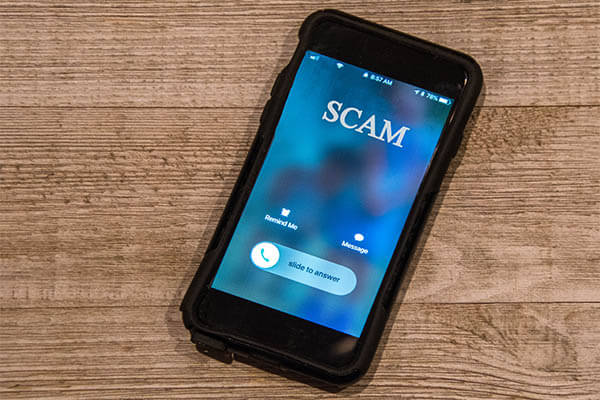Warning : Spam Calls: How to Deal with Annoying Phone Scams

warning: 18774530539, 1-877-453-0539, 18885776012, 8774530539, 18774530539, 7786121000, 18002401627, 6043421000, 8888112323, 514 375 2413, 778-612-1000, 8773627434, 4169355555, 18773627434, 778 612 1000, (662) 255-3743, 8663102355, 8885776012, 604-342-1000, +1 (514) 375-2413,
Introduction
Alert spam call 18774530539 1877 4530539 8774530539 18774530539 7786121000 18002401627 6043421000 in canada : smartphones have become an indispensable part of our lives, keeping us connected to the world. However, with increased connectivity comes the unwanted intrusion of spam calls. These pesky calls can be a significant source of annoyance and even pose a threat to our personal and financial security. In this article, we will delve into the world of spam calls, understand their workings, and explore effective strategies to deal with them.
What Are Spam Calls?
Spam calls, also known as nuisance calls or robocalls, are unsolicited phone calls that deliver pre-recorded messages or connect you to telemarketers trying to sell products or services. The callers behind these scams often use deceptive tactics to trick individuals into divulging sensitive information or falling victim to financial fraud.
The Rising Menace of Spam Calls
The prevalence of spam calls has skyrocketed in recent years, making them a formidable menace to both individuals and businesses alike. According to recent statistics, millions of spam calls are made each day, causing substantial disruptions to our daily lives and potentially leading to financial losses.
How Do Spam Calls Work?
Spoofing Caller IDs
One common technique employed by spam callers is “caller ID spoofing.” This involves falsifying the information displayed on the recipient’s caller ID to make it appear as if the call is coming from a trusted source, such as a government agency or a local business.
Robocalls and Automated Messages
Spam calls often use robocalls, where an automated system delivers pre-recorded messages to a large number of recipients simultaneously. These messages can be anything from promotional offers to urgent warnings, all designed to prompt action from the recipient.
Social Engineering Techniques
Spammers utilize social engineering to manipulate individuals into revealing sensitive information, such as social security numbers, bank account details, or passwords. They may impersonate authority figures or create a sense of urgency to gain the victim’s trust.
Impact of Spam Calls on Individuals and Businesses
Annoyance and Disruption
Spam calls disrupt our daily routines, interrupt important conversations, and cause frustration. Many individuals avoid answering unknown numbers altogether, fearing they might be spam calls, which further hampers communication.
Financial Fraud and Scams
One of the gravest dangers posed by spam calls is the potential for financial fraud. Scammers may lure unsuspecting victims into providing personal information or making payments for fake services, resulting in financial losses.
Reputation Damage for Legitimate Businesses
Spam calls conducted under the guise of legitimate businesses tarnish the reputation of those organizations. Consumers become wary of engaging with any telemarketing calls, even if they are from genuine companies.
Understanding the Legal Aspects of Spam Calls
National Do Not Call Registry
The National Do Not Call Registry allows individuals to register their phone numbers to reduce the number of unwanted telemarketing calls they receive. Companies are prohibited from calling numbers on the registry unless they have prior consent.
The Telephone Consumer Protection Act (TCPA)
The TCPA restricts telemarketing calls, unsolicited faxes, and automated dialing systems. Violations can result in penalties for companies that engage in illegal telemarketing practices.
Filing Complaints with the Federal Trade Commission (FTC)
The FTC is responsible for enforcing telemarketing rules and regulations. Individuals who receive spam calls can file complaints with the FTC to report violators.
Tips to Identify Spam Calls
Unknown Numbers
Be cautious when answering calls from unfamiliar numbers, especially if they originate from different area codes or countries.
High-Pressure Tactics
Spammers often use high-pressure tactics to rush you into making decisions. Be wary of callers who insist on immediate action or demand sensitive information.
Requests for Personal Information
Legitimate organizations seldom ask for personal information over the phone. Avoid sharing sensitive details unless you can verify the caller’s identity.
How to Deal with Spam Calls Effectively
Block and Report Numbers
Most smartphones allow you to block specific numbers. If you receive a spam call, block the number to prevent further calls from the same source. Additionally, report the number to your service provider or the appropriate authorities.
Use Call Filtering Apps
Consider using call filtering apps that can automatically identify and block spam calls before your phone even rings.
Be Cautious with Personal Information
Never provide personal or financial information to unknown callers, no matter how urgent the situation may seem.
Seek Support from Your Service Provider
Contact your service provider and inquire about call-blocking features or other measures they offer to combat spam calls.
The Role of Technology in Combating Spam Calls
Artificial Intelligence and Machine Learning
Advancements in AI and machine learning have enabled the development of sophisticated algorithms to detect and filter spam calls effectively.
Call Authentication and STIR/SHAKEN
STIR/SHAKEN is a framework that verifies the authenticity of caller IDs, helping identify and block spoofed calls.
The Human Element: Educating and Empowering Users
Awareness and Education Programs
Promote awareness about spam call risks and educate users on how to identify and handle such calls.
Promoting Call Screening and Vigilance
Encourage individuals to use call screening features on their phones and to remain vigilant when receiving calls.
The Constant Evolution of Spam Call Tactics
Text Message Scams (Smishing)
Spammers have extended their tactics to text messages, attempting to trick recipients into providing sensitive information through SMS.
One-Ring Scams
Scammers use “one-ring” calls to encourage recipients to call back premium-rate numbers, resulting in high phone bills.
Neighbor Spoofing
Neighbor spoofing involves using phone numbers with the same area code as the recipient to increase the likelihood of the call being answered.
Future Outlook: Can We Eradicate Spam Calls Completely?
While advancements in technology and regulations have made progress in combating spam calls, it is unlikely that we can completely eradicate them. However, with continued efforts and vigilance, we can minimize their impact and protect ourselves better.
Conclusion
Spam calls have become an unfortunate reality of our connected world. However, armed with knowledge and awareness, we can take proactive measures to mitigate their effects. By staying informed, utilizing available technology, and being cautious with personal information, we can reduce the risk of falling victim to spam call scams.
FAQs
-
Are all unknown calls spam calls?
- Not all unknown calls are spam calls, but it’s essential to exercise caution when answering unfamiliar numbers to avoid potential scams.
-
Can spam calls lead to financial loss?
- Yes, spam calls can lead to financial losses if individuals unknowingly share sensitive information or fall victim to fraudulent schemes.
-
Do call filtering apps work effectively?
- Call filtering apps can be quite effective in blocking and identifying spam calls, but their efficiency may vary based on the app’s capabilities and the frequency of updates.
-
What should I do if I receive a suspicious call?
- If you receive a suspicious call, refrain from providing any personal information and consider blocking the number and reporting it to the appropriate authorities.
-
Is the fight against spam calls ongoing?
-
Yes, the fight against spam calls is an ongoing process, involving a combination of technology, regulations, and user education to tackle the evolving tactics of spammers.







